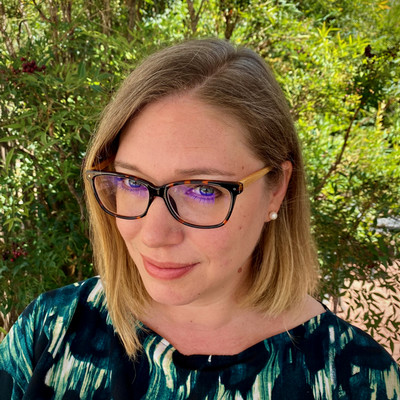Catherine Rhodes
Teaching/Research
|
2024-25
Mexico
Catherine R. Rhodes is an Assistant Professor in the Anthropology Department and affiliated faculty in Latin American and Iberian Studies; Educational Linguistics; and Organization, Information, and Learning Sciences at the University of New Mexico. She is a sociocultural, linguistic, and semiotic anthropologist whose research focuses on education, language politics, and social identification. She conducts research on the Yucatan Peninsula in Mexico and has also conducted collaborative research in the U.S. in the (New) Latino Diaspora on the East Coast and on language ideologies in New Mexico. She is also the founder and director of the Maya (Yucatec) Language Program at UNM.
During the 2024-2025 academic year, Dr. Rhodes earned a U.S. Scholar Fulbright fellowship to Mexico. This teaching and research award allows Dr. Rhodes to introduce linguistic anthropology, a uniquely American subfield of anthropology, to Spanish-speakers and develop the first curricula in Spanish. She is currently co-authoring the fourth edition of the popular undergraduate linguistic anthropology book, Living Language: An Introduction to Linguistic Anthropology (Wiley), with Laura Ahearn and the first edition of this book in Spanish: El Lenguaje Vivo: Una introducción a la antropología lingüística. Dr. Rhodes is researching best-practices in teaching and learning in higher education in Mexico, and she will apply her findings to the design of linguistic anthropology courses which she will teach at the Universidad Autónoma de Yucatán (UADY). In one of the courses, she will pilot-test the 1st ed. of the Spanish-language introductory linguistic anthropology book in the classroom with students—a text that she will have adapted culturally and linguistically. She will then create a new international teaching collaboration for ongoing delivery of the courses via the Collaborative Online International Learning (COIL) method between her home (UNM) and host (UADY) universities. These new COIL courses will not only make the study of linguistic anthropology available to students in Spanish in Mexico, but they will also provide opportunities for students in New Mexico and Yucatan to engage in binational collaborative projects and to practice their Spanish and/or English language skills in the disciplinary context of anthropology.

